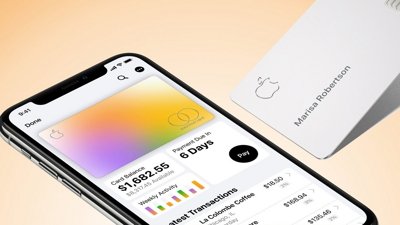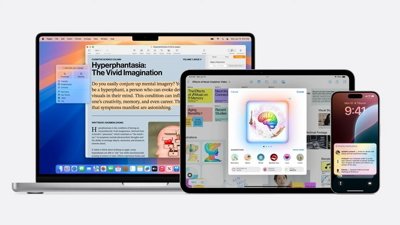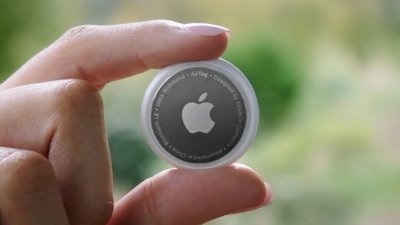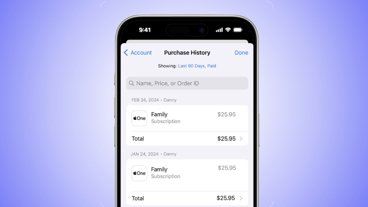In total, the six companies represent the "majority of the mobile apps market," California's Office of the Attorney General said in a statement. Amazon, Apple, Google, Hewlett-Packard, Microsoft and Research in Motion have all signed the agreement.
According to the statement, the companies have adopted "privacy principles" that will bring them in compliance with the California Online Privacy Protection Act, a law that requires "mobile apps that collect personal information to have a privacy policy."
"This agreement strengthens the privacy protections of California consumers and of millions of people around the globe who use mobile apps," Attorney General Harris said. "By ensuring that mobile apps have privacy policies, we create more transparency and give mobile users more informed control over who accesses their personal information and how it is used."
Harris gathered together the six companies last August to bring up the issue of mobile app privacy policies.
"California has a unique commitment to protecting the privacy of our residents. Our constitution directly guarantees a right to privacy, and we will defend it," Harris added. "Forging this common statement of mobile privacy principles shows the power of collaboration — among government, industry and consumers — to create solutions to problems no one group can tackle alone."
As a result of the new agreement, app buyers will be able to look over privacy policies before purchasing the product. Developers who do not comply with their privacy policies could be prosecuted under California law.
Apple and the other companies have also agreed to educate developers about the new policies. They will also work to offer users tools to report non-compliant apps.
With the rapid rise of the app-driven ecosystem, lawmakers and regulators have stepped in to ensure proper privacy protection. Last summer, the U.S. Senate introduced a bill that would require Apple, Google and application developers to obtain express consent from users before collecting or sharing location information. The proposed legislation came in response to concerns that iOS and Android were improperly collecting user location information.
Apple is currently counting up to its 25 billionth app download and is offering a $10,000 App Store Gift Card to an eligible user who pushes the company past the milestone.
The number of applications in the App Store is approaching 600,000. Apple has paid out over $4 billion to App Store developers. One recent study attributed 466,000 new jobs to the creation of the "App Economy" that Apple sparked with the launch of the App Store in 2008.
 AppleInsider Staff
AppleInsider Staff














 Christine McKee
Christine McKee
 Andrew Orr
Andrew Orr
 Malcolm Owen
Malcolm Owen
 Amber Neely
Amber Neely












5 Comments
If I dev an app that they think violates CA's constitution and this agreement with Apple, they are gonna sue me in CA civil court? OK.
If I dev an app that they think violates CA's constitution and this agreement with Apple, they are gonna sue me in CA civil court? OK.
The way I read this is that you only have to have a privacy policy, not to actually honor a person's privacy since the person would have to opt-in (agreed to your terms) to use the software or service.
Google being a signatory tells me that this bear has no teeth. Suppose I have a browser or service, such as chrome or gmail, and it's very popular and I want to use it to collect people's data. To use the browser, they would have to agreed to giving up their privacy and allow whatever data I want to collect legally. This only says you have to have a policy to collect legal data. If you don't agreed, tough shit, don't use or buy my product.
Google would have no problem signing on to such a petition because having the policy makes their evil legal.
The way I read this is that you only have to have a privacy policy, not to actually honor a person's privacy since the person would have to opt-in (agreed to your terms) to use the software or service.
Google being a signatory tells me that this bear has no teeth. Suppose I have a browser or service, such as chrome or gmail, and it's very popular and I want to use it to collect people's data. To use the browser, they would have to agreed to giving up their privacy and allow whatever data I want to collect legally. This only says you have to have a policy to collect legal data. If you don't agreed, tough shit, don't use or buy my product.
Google would have no problem signing on to such a petition because having the policy makes their evil legal.
The guy who signed for Google kept dropping his pen because all of his fingers were crossed.
The problem, as I see it, it isn't not providing an agreement, but providing an agreement that isn't 150 pages long and so technical people agree to it because they need/want the software. In plain language tell me what you're taking from my phone and what you want to do with that information. Also, what are you going to do to safeguard my information.
I've worked in public health research for almost a decade and when we're doing a study, we must provide two informed consent forms (one for participants to sign and for us to keep and one for them to keep). These consent forms have a 6 grade reading level and are no longer than one page.
The guy who signed for Google kept dropping his pen because all of his fingers were crossed.
My laugh for today. I love that response.